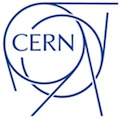Speaker
Ben Wolff
(CERN)
Description
"Any fool can write code that a computer can understand. Good programmers write code that humans can understand."
- Martin Fowler
Writing code is communication. Not only with the computer that executes it, but also with other developers and even oneself. A developer spends a lot of his working time reading and understanding code that was written by other developers or by himself in the past. The readability of the code plays an important role for the time to find bugs or add new features, which in turn has a big impact on the productivity. Even bad code can function. But code that is difficult to understand, hard to maintain and refactor, and prone to hide errors in an inscrutable mess can bring the development of a project down to its knees.
The costs of poorly written code are significant, but it doesn't have to be that way. Writing cleaner - better - code is an important asset of professional software craftsmanship and requires know-how, experience, discipline, and also hard work.
In this presentation we will explore the meaning and importance behind the term "clean code" together with some principles and guidelines for producing better code. The presented principles are based on the book "Clean Code: A Handbook of Agile Software Craftsmanship" by noted software expert Robert C. Martin.
Author
Ben Wolff
(CERN)
